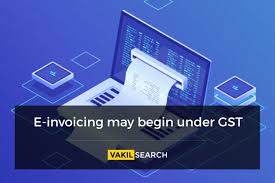Ever since the arrival of GST it has become a debatable subject among the various business owners, media and political parties. However, it must be accepted that the changes brought about by it are positive. The changes made to it after implementation have made sure that it continues to function seamlessly without any significant glitches.
The goods and services taxes launch in 2017 replacing a wide variety of indirect taxes have come to be a breakthrough in the taxing rule. The boon-bane debate, however, keeps on to still surround it. Since the launch of the new reformed tax regime, it has undergone major as well as minor switch in order to adjust to the Indian economy. The regime is set to take up another major change head-on this year, which has the potential effect on the overall taxing regime and functioning of business enterprises across the country.
Tax Regime
There has been news that the reformed tax rule of GST is set to include within its ambit electronic invoicing as well. Once the system is in place, it is very much expected that the business can directly draw invoices on the online GST Network. The network will offer a database for the authorized person to directly access. This proposal is under consideration and the GST Council has set up a board to look into the possibility and implications of such an initiative. The committee includes both central as well as state tax officials as well as the GST Network Chief Executive. The database has been made viable by the help of registering the electronic invoices under the GSTN number, thus not requiring separate enrollment for the same.
The need for the alteration has grown out of the reported evasions under the refined tax regime. In order to restrict invasions, there have been some other initiatives by the council as well, as the introduction of electronic waybills (e-way bills).
Taxation pundits are of the opinion that the inclusion of electronic invoicing will be a step ahead to curb potential tax avoidance. Pratik Jain, the national leader of indirect taxes PwC in an interview announce that:
The partner of AMRG and associates Rajat Mohan is of the point of view that in order to incentivise businesses to acquire the new system, the tax department could limit the frequency of compulsory departmental audits in case procurements are made on the basis of e invoicing. However, the success of the new entrant in the regime is completely dependent upon the successful implementation which can be done only when the technical and infrastructural aspects of the idea have been adequately addressed.
Tax Administrators Views
The tax administrators, on explaining the new system have revealed that businesses beyond a turnover threshold would be handled with a software which will be linked to GST or a government portal for generating e invoicing. Once it’s done, we need to get a GST invoice.
The threshold can also be fixed on the basis of the worth of the invoice. The current system in place needs an e-way bill for moving goods exceeding the threshold of 50,000 rupees. However, the proposal is to completely replace any such requirement pertaining to the creation of the e-way bill as the e invoicing will be centrally generated through a government portal. The concerned bureaucrats are subjecting the proposal to worldwide research, compared to the great international practices of other countries, following a similar system. In a PTI interview, one of the officials said:
We will also look at ways to incentivise businesses to acquire the method of e invoice generation.”
The commencement of having such a mechanism in place is a clear indication of the government’s purpose to grab evasions by the very root of it and get rid of all loopholes which are being taken advantage of. Though the act of eluding has also spread its ambit and is existing in various forms, this can be seen as a positive step in the right path which might be able to bring down evasion significantly.
E-invoicing has become a norm with GST. The goods and service tax has made it simple for all businesses to carry on their major operations without focusing too much on needless legal hurdles. It has been a positive swap for the government because tax evasion has gone out of the equation with effective tracking measures for all.
What is the validity of a GST certificate?
When a GST certificate is issued to a non-resident or casual taxable person, the same will be valid for a certain time period only.



